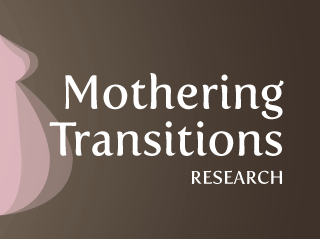Evaluating Collaborative Care for Postpartum Depression in Early Childhood Primary Care Settings
Objective: To evaluate the effect of a collaborative care intervention on postpartum depression among mothers attending well-child visits in early childhood primary care settings.
Background: Depression is a widespread condition that is projected to be responsible for the highest global burden of disease by the year 2030. Although it affects individuals throughout the lifespan, women are at increased risk during their reproductive years. Last year, over 49,000 Canadian mothers experienced depression within the first 12 months postpartum, putting at least 80,000 children at risk for poor developmental outcomes. International experts have clearly identified exposure to maternal depression as a major childhood adversity and have suggested that effective interventions to address this condition are one of the most important preventive strategies we can implement to reduce long-term negative developmental trajectories among children. Maternal depression significantly interferes with parenting cognitions and behaviours and places the child at increased risk for cognitive and behavioural problems. These negative effects begin in the early infant environment such that interventions to treat depression in mothers with very young children are of the highest priority. While effective treatment tools (e.g., psychotherapy; antidepressant medication) exists for postpartum depression (PPD), less than 50% of mothers with depression in the first year postpartum receive adequate treatment. Barriers to treatment uptake include inadequate case identification, maternal perceptions, and lack of clear referral pathways. New treatment approaches are required to address the gap between the existence and uptake of effective PPD treatment tools. “Collaborative care” is an approach to treatment that is highly effective for the management of depression in primary care settings. In a collaborative care model, case identification occurs at the primary care level. A depression care manager directs individuals to appropriate treatment and monitors progress – all in collaboration with a mental health specialist. Part of the success of this approach is that it actively promotes treatment initiation and adherence while addressing patient preferences and perceived barriers. However, this approach has not been evaluated for the treatment of PPD and no evidence-based system for PPD management in primary care exists in Canada. Our innovative study will be the first to evaluate a collaborative care approach modified specifically for PPD where case identification will occur in early childhood primary care settings and a depression care manager will provide treatment coordination and support via telephone. The early childhood primary care setting is ideal for case identification as primary care providers have multiple opportunities to interact with mothers throughout the first year postpartum.
Design Overview: A randomized controlled trial (RCT) will be conducted. All mothers between 0 and 6 months postpartum attending a TARGet Kids! primary care practice for a well-child visit will be approached by a research assistant to enrol in the TARGet Kids! cohort. Consenting mothers will complete the TARGet Kids! baseline questionnaire and the Edinburgh Postnatal Depression Scale (EPDS). Any mother identified with depressive symptomatology (EPDS score > 9) will be briefly introduced to the trial by a TARGet Kids! research assistant. If verbal consent is obtained, contact information will be sent to the trial coordinator who will then telephone the referred mother and re-administer the EPDS. If the score remains > 9 then the trial coordinator will ensure eligibility and provide a detailed study explanation. Eligible and consenting mothers will complete a trial baseline questionnaire and then they will be randomized to either the intervention group (usual postpartum care plus collaborative care) or the control group (usual postpartum care). All mothers will be followed up at 6, 9, and 12 months post-randomization via telephone by a blinded research nurse. Child outcome data will be collected by trained TARGet Kids! staff at each practice.
Relevance: Our proposed study is novel, important, and timely, as it will provide rigorous data to advance our understanding of how to deliver optimal mental health care for mothers in the postpartum period while also offering information about how improving depression treatment outcomes serve to prevent adverse outcomes in children. We expect to make substantive contributions in five areas: (1) advance the evidence-base concerning the effect of collaborative care for the management of PPD; (2) promote a further understanding of PPD case identification in the early childhood primary care setting; (3) examine the effect of collaborative care on child developmental outcomes; (4) provide a detailed report of the nature and intensity of the PPD collaborative care activities and specific referral pathways; and (5) deliver an economic evaluation of the collaborative care intervention.
